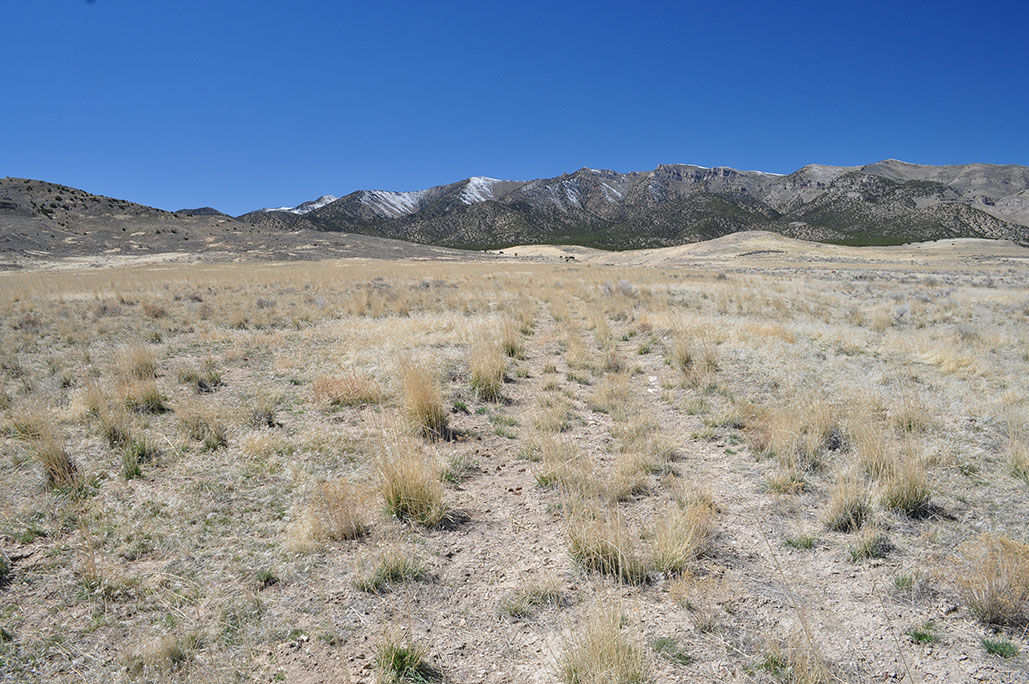We previously reported that Sen. Orrin Hatch and Rep. Chris Stewart have introduced legislation to create a “withdrawal zone” across Bureau of Land Management lands, effectively expanding by 625,000 acres the operational footprint of the Utah Test and Training Range in the West Desert.
But the bills (S. 2383 in the Senate, H.R. 4579 in the House) do a whole lot more than that, none of it good. They facilitate a bad land exchange, skirt the National Environmental Policy Act and, worst of all, give away 6,000 miles of bogus RS 2477 routes (rights-of-way claimed under a Civil War era legal loophole) to Juab, Tooele and Box Elder counties.
The blatant road giveaway is a move to give the counties legislatively what they are unlikely to obtain fairly in court. More than half of the claimed routes are faded, unused two-tracks left by prospectors and cowboys, or sometimes just dry washes and cow paths. One route Box Elder County has sued for goes right through the designated Cedar Mountain Wilderness, which passed with support from the entire Utah delegation just 10 years ago.

Fortunately, the Salt Lake Tribune and others in Utah are seeing through the nonsense. “There is no military reason whatsoever to include the easements. Their presence is simply an attempt to slip in a reward for the counties, perhaps as compensation for the fact that the bill will result in more federal land in the counties,” opined a Tribune editorial denouncing the RS 2477 provision. “The test-range bill should be about the test range, not flying a public-lands agenda under the radar.”
More than 25 national environmental organizations, including the Sierra Club, the Natural Resources Defense Council, The Wilderness Society, the Defenders of Wildlife and Earthjustice joined SUWA in writing a letter to the House and Senate resources committees in opposition.
In a hearing on Stewart’s bill before the House Committee on Natural Resources in February, Redrock champion Rep. Alan Lowenthal (D-CA) and committee ranking member Rep. Niki Tsongas (D-MA) actively questioned why the bill contained the language. Stewart claimed not to remember whether the military had requested the provision, so foggy was his memory from all the stakeholder meetings that were supposedly held! But the answer is no—the routes have nothing to do with the military and the Defense Dept. didn’t ask for them.
More recently, in a markup on the bill in the same committee (this is when members start tinkering with legislation by adding amendments, and then eventually advance it, or not), Lowenthal and Tsongas, with Rep. Raul Grijalva (D-AZ) again raised strong objections. Lowenthal offered amendments to strike the RS 2477 language and allow the Secretary of Interior a say in what would be traded in the bill’s proposed land exchange.
A petulant Rep. Rob Bishop (R-UT), committee chair, said that there are no RS 2477 claims in designated wilderness (untrue) or in wilderness study areas (untrue). He responded to a reading of the Tribune’s editorial with the pugnacious assertion that its criticisms made evident why “I don’t subscribe to the Salt Lake Tribune.”
The committee’s makeup is terribly lopsided, so the amendments failed and the bill was voted out of committee, but not before it had taken a beating. Next, Stewart and Hatch are likely to try to slip their legislation into the National Defense Authorization Act, a behemoth package of defense bills, which may come to the floor in May. Senators tend to dislike controversial add-ons in this package and, as the strong showing of redrock champions at the House markup showed us, many members of Congress see this bill for what it is and are willing to fight back.
—Jen Ujifusa
(From Redrock Wilderness newsletter, Spring 2016 issue)

